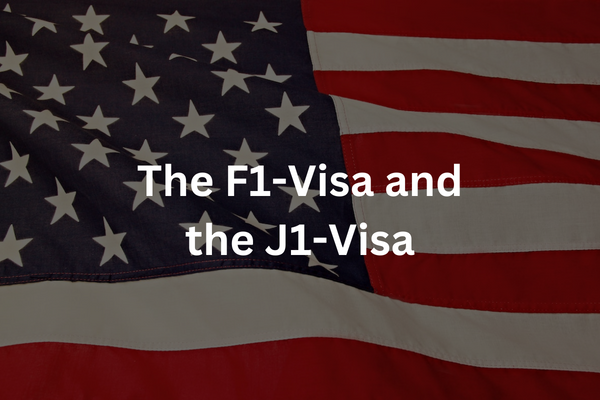Skilled Work Regional (Provisional) – Subclass 491 visa
The Skilled Work Regional (Provisional) visa (subclass 491) allows skilled migrants to live, study and work in designated regional areas for a period of 5 years. This subclass is available and suitable to skilled workers who are willing to live and work in a designated regional area.
Further, it is available both to skilled workers who are already living and working in Australia as temporary residents, and to those living outside Australia.
Basic Eligibility
-
- be nominated to apply by a state or territory government agency, or an eligible relative must sponsor you. That means you need to get nomination from region in Australia or a close relative
- have an occupation on a relevant skilled occupation list
- Need skill assessment for the occupation one wants to apply under
- be invited to apply. Minimum points required are 65 to be invited to apply, however, invitations are often issued to applicants with more than 65 points. (Talk to us for a free assessment)
Some popular occupations listed under subclass 491 are:
-
-
- Construction Project Manager; Civil Engineer; Structural Engineer
- Engineering Manager; Mechanical Engineer; Chemical Engineer
- Child Care Center Manager
- Nursing Clinical Director
- Primary Health Organization Manager
- Welfare Center Manager
- Accountant (General); Taxation Accountant; External Auditor; Internal Auditor; Management Accountant
- Architect; Landscape Architect
- Chemist Etc
-
Subclass 190 – Skilled Nomination Visa
The Skilled Nominated Visa (Permanent) (Class SN) (Subclass 190) is a permanent resident visa for points-tested skilled workers who have received State or Territory government nomination and want to work and live in Australia.
Although subclass 190 is a Permanent Visa and the process is similar to the more famous subclass 189 PR visa, there is an important difference. For subclass 190 the applicants are not invited to apply by the Federal Government (Skill Select) but rather are invited by a state or regional government on the basis of skills required by that particular regional government.
The positive side to this is that the applicants don’t have to struggle for points race in most of the cases. However, recent applicants under subclass 190 who have applied in NSW and Victoria states have secured high points.
So simply, the 190 visa requires the applicant to be nominated by a specific State or Territory of Australia to apply and they decide on their specific requirements and conditions on which one can apply.
Important guidelines for applicants:
-
-
- Applicants’ occupation has to be listed on the MLTSSL list, or the STSOL (Short-Term Skilled Occupation List) or the ROL (Regional Occupation List). But that is not enough, the occupation must also feature on State or Territory list
- The State or Territory List is determined by the shortage of skills or occupations in that State / Territory. The States decide on this list independently. The States also decide on the factors such as projected growth of that region in coming years.
- It is a popular belief that states and territories give preference only to those who are already living, studying or working in the region; or have invested in education from that region. But some states also nominate applicants from overseas who have any of the skills which is in shortage. However, if someone is living/ studying/ working in one state of Australia, then they cannot get the nomination for subclass 190 in another state.
- Once 190 visa is granted the applicant’s dependent family members have to reside and work in the state which has nominated and granted the visa,- for at least 3 years.
(talk to us for understanding other visa requirements)
-
Subclass 482 – Temporary Skill Shortage Visa
Temporary Skill Shortage visa (subclass 482) or “TSS visa” is a work visa which allows Australian employers to sponsor a person from overseas to work in their business in Australia. This particular work visa was introduced in March 2019 and has been popular ever since.
In this visa the Australian business holder/ employer is directly involved in offering a job to overseas workers with very specific skills. These skills are either in shortage in Australia or extra demand for that skill are risen due to any reason. Onshore international workers can be eligible for this visa if they have been offered a job by any company (falling in the designated skill shortage).
For any other visa, the applicant has to pay for all visa fees but in case of subclass 482, the sponsoring employer has to pay for the costs of visa and nomination. Strict provisions in the migration law have been made to ensure that employer sponsors pays all required fees. The employer has to prove that due to shortage, they can’t find an Australian to do the work.
Important Information Regarding the visa
- Skills assessments are only needed for TSS subclass 482 visas (except for a few occupations)
- Only primary applicant has to give English requirement exam demonstration total overall band of 5.0
- Occupation has to be listed on eligible short-term skilled occupation list. The Short-term Skilled Occupation List (STSOL) includes a set of skilled occupations determined by the Department of Employment (DoE) and the Department of Home Affairs (formerly DIBP) and is reviewed every six months.
Subclass 189 – Skilled Independent Visa
The Skilled Independent (Subclass 189) visa is a point-based visa designed to choose a specific group of abroad skilled workers needed in various Australian states. It enables skilled professionals to relocate and live in Australia without the necessity for a family member’s sponsorship or a state or territory government nomination.
This visa allows you to live, study, or work in Australia indefinitely, enroll in Medicare, apply for Australian citizenship, and leave and re-enter Australia for a period of five years from the date the visa is issued.
Eligibility Requirements:
- Choose an occupation from the Medium and Long-Term Strategic Skills List (MLTSSL) and add it to your resume. At the very least, you must be proficient in English.
- Be able to communicate in English at a basic level
- Obtain the score required for your visa application
- Meet the prerequisites for health and character
- Have your abilities evaluated by the appropriate assessing authority




